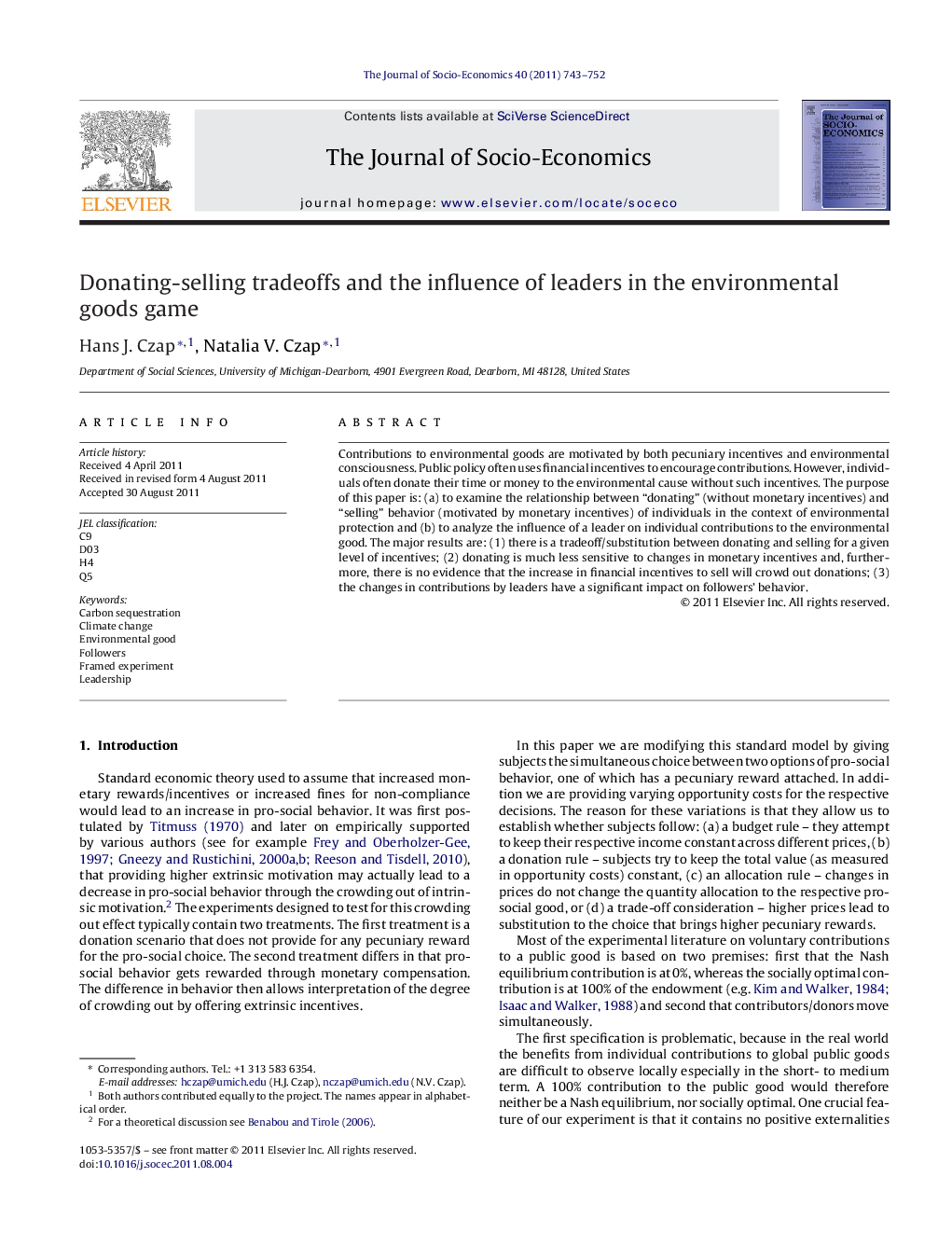| Article ID | Journal | Published Year | Pages | File Type |
|---|---|---|---|---|
| 970072 | The Journal of Socio-Economics | 2011 | 10 Pages |
Contributions to environmental goods are motivated by both pecuniary incentives and environmental consciousness. Public policy often uses financial incentives to encourage contributions. However, individuals often donate their time or money to the environmental cause without such incentives. The purpose of this paper is: (a) to examine the relationship between “donating” (without monetary incentives) and “selling” behavior (motivated by monetary incentives) of individuals in the context of environmental protection and (b) to analyze the influence of a leader on individual contributions to the environmental good. The major results are: (1) there is a tradeoff/substitution between donating and selling for a given level of incentives; (2) donating is much less sensitive to changes in monetary incentives and, furthermore, there is no evidence that the increase in financial incentives to sell will crowd out donations; (3) the changes in contributions by leaders have a significant impact on followers’ behavior.
► Experiment on the role of leadership in the provision of an environmental good. ► There is a tradeoff/substitution between donating and selling for a given level of pecuniary incentives. ► Donating is not sensitive to changes in monetary incentives. ► Changes in contributions by leaders have a significant impact on followers’ behavior.
